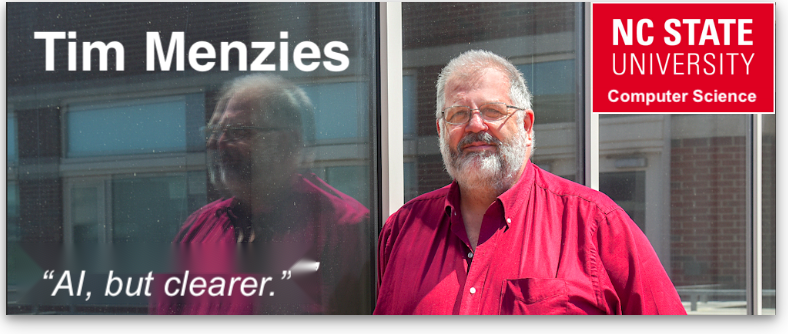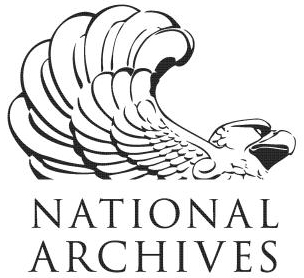papers | pre-prints | dblp timm@ieee.org | +1-304-376-2859 | rm 3304, EB2 (map)

So I seek talented grad students &
industrial partners to find + fix the
problems in real-world AI/ML.
Is that you? Maybe "yes" if you want to be a leader in AI (and not just another follower).

videos
|
|
Tim Menzies (Ph.D. UNSW 1995, ACM Fellow, IEEE Fellow, ASE Fellow) is a globally recognized leader in software engineering research, best known for his pioneering work in data-driven, explainable, and minimal AI for software systems. Over the past two decades, his contributions have redefined defect prediction, effort estimation, and multi-objective optimization, emphasizing transparency and reproducibility. As the co-creator of the PROMISE repository, Tim helped establish modern empirical software engineering, showing that small, interpretable AI models can outperform larger, more complex ones. Currently, he works as a full Professor in computer science at NC State, USA. He is the director of the Irrational Research lab (mad scientists r'us). His research has earned over $19+ million in funding from agencies such as NSF, DARPA, and NASA, as well as from private companies like Meta, Microsoft and IBM. Tim has published over 300 papers, with more than 24,000 citations, and advised 24 Ph.D. students. He is the editor-in-chief of the editor-in-chief of the Automated Software Engineering journal and an associate editor for IEEE TSE. His work continues to shape the future of software engineering, focusing on creating AI tools that are not only intelligent but also fair, transparent, and trustworthy. For more information, visit timm.fyi. |
 Currently:
Currently:
- Teaching: Graduate Intro to SE
- Editor-in-chief: Automated Software Engineering journal
- Associate Editor: IEEE Trans SE
- Editorial Board: Communications of the ACM (opinions)
- Track co-chair: ESEM'25 (doctoral symposium)
- Program committees: ICSE'26, ICSE'25, FSE'25, ASE'25, SANER'25, ESEM'25, CAIN'25, AAAI(ethics)'25
| Ph.D.s (current): | Ph.D.s (graduated 🎓): | |
|





